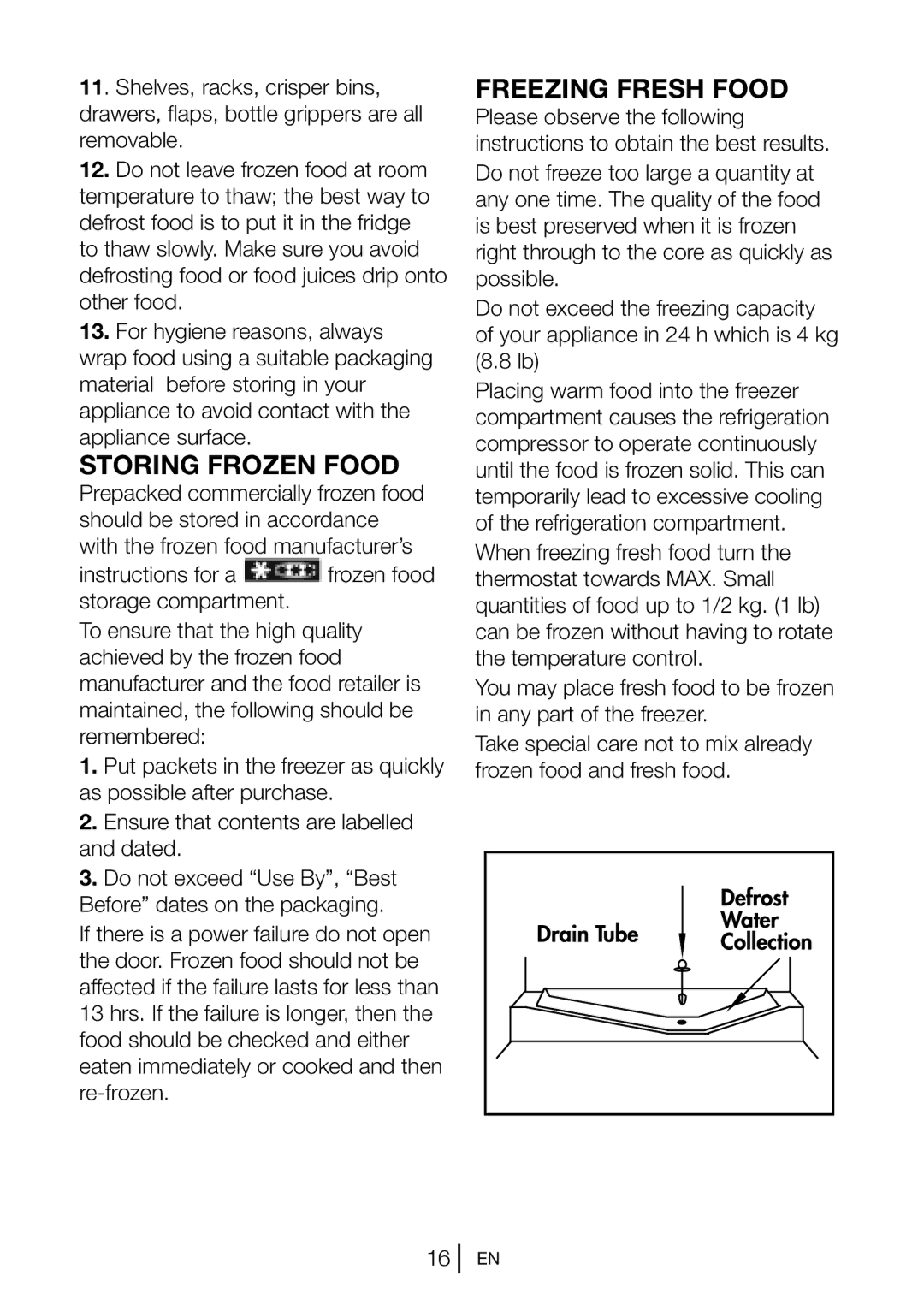
11. Shelves, racks, crisper bins, drawers, flaps, bottle grippers are all removable.
12.Do not leave frozen food at room temperature to thaw; the best way to defrost food is to put it in the fridge to thaw slowly. Make sure you avoid defrosting food or food juices drip onto other food.
13.For hygiene reasons, always
wrap food using a suitable packaging material before storing in your appliance to avoid contact with the appliance surface.
STORING FROZEN FOOD
Prepacked commercially frozen food should be stored in accordance with the frozen food manufacturer’s
instructions for a ![]() frozen food storage compartment.
frozen food storage compartment.
To ensure that the high quality achieved by the frozen food manufacturer and the food retailer is maintained, the following should be remembered:
1.Put packets in the freezer as quickly as possible after purchase.
2.Ensure that contents are labelled and dated.
3.Do not exceed “Use By”, “Best Before” dates on the packaging.
If there is a power failure do not open the door. Frozen food should not be affected if the failure lasts for less than
13hrs. If the failure is longer, then the food should be checked and either eaten immediately or cooked and then
FREEZING FRESH FOOD
Please observe the following instructions to obtain the best results.
Do not freeze too large a quantity at any one time. The quality of the food is best preserved when it is frozen right through to the core as quickly as possible.
Do not exceed the freezing capacity of your appliance in 24 h which is 4 kg (8.8 lb)
Placing warm food into the freezer compartment causes the refrigeration compressor to operate continuously until the food is frozen solid. This can temporarily lead to excessive cooling of the refrigeration compartment.
When freezing fresh food turn the thermostat towards MAX. Small quantities of food up to 1/2 kg. (1 lb) can be frozen without having to rotate the temperature control.
You may place fresh food to be frozen in any part of the freezer.
Take special care not to mix already frozen food and fresh food.
16
EN
